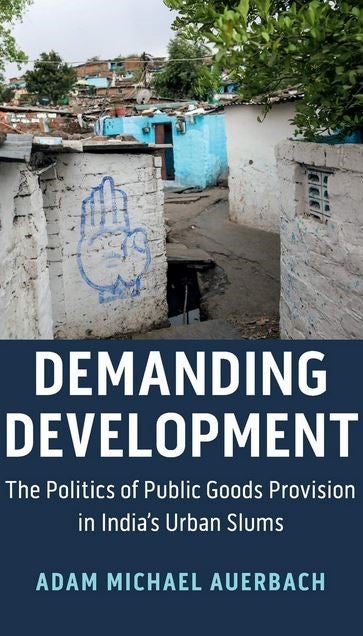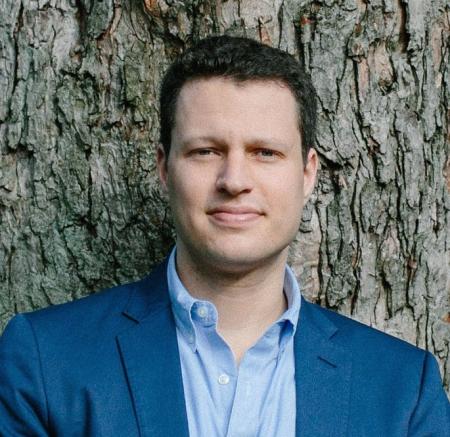Demanding Development: The Politics of Public Goods Provision in India's Urban Slums
Ronald O. Perelman Center for Political Science & Economics
133 South 36th Street, Suite 230
Philadelphia PA 19104-6215
About the Author:
Adam Auerbach is an Assistant Professor in the School of International Service at American University. His research focuses on local governance, urban politics, and the political economy of development, with a regional focus on South Asia and India, in particular. His research has appeared or is forthcoming in the American Journal of Political Science, American Political Science Review, Journal of Politics, Studies in Comparative International Development, World Development, and World Politics.
 About the Book:
About the Book:
Demanding Development: The Politics of Public Goods Provision in India’s Urban Slums (Cambridge University Press, 2019)
India’s urban slums exhibit dramatic variation in their access to local public goods and services—paved roads, piped water, trash removal, sewers, and streetlights. Why are some vulnerable communities able to demand and secure development from the state while others fail? Drawing on more than two years of fieldwork in the north Indian cities of Bhopal and Jaipur, Demanding Development accounts for the uneven success of India’s slum residents in securing local public goods and services from the state. Auerbach’s theory centers on the political organization of slum settlements and the informal slum leaders who spearhead resident efforts to make claims on the state—in particular, those slum leaders who are party workers. He finds striking variation in the extent to which networks of party workers have spread across slum settlements. Demanding Development shows how this variation in the density and partisan distribution of party workers across settlements has powerful consequences for the ability of residents to politically mobilize to improve local conditions.

